This article was medically reviewed by Erik Kramer, DO, MPH. Dr. Erik Kramer is a Board-Certified Primary Care Physician at the University of Colorado. With over 15 years of experience, his clinical interests include obesity and weight management, diabetes care, and preventive care, as well as embracing a holistic approach to primary care. He received his Doctorate in Osteopathic Medicine (D.O.) from the Touro University Nevada College of Osteopathic Medicine and completed his residency at Central Maine Medical Center. Dr. Kramer is a Diplomate of the American Board of Obesity Medicine.
There are 15 references cited in this article, which can be found at the bottom of the page.
This article has been viewed 12,748 times.
Using a blood test to detect cancer is a relatively new—but still medically reliable—method of finding the disease. Blood tests are most reliable at detecting cancers of the blood, like leukemia.[1] A doctor may still order blood testing if they suspect that you have a non-blood-related type of cancer, though, since a blood test is still a good way for doctors to detect signs of tumors inside of your body. This is great news for patients since early detection can improve your chances of beating cancer. If you have noticed any early signs of cancer—and especially of blood cancer—visit your doctor and ask them to perform blood tests.[2]
Steps
Seeing Your Doctor
-
1Pay attention to any early warning signs of cancer. There are many types of cancer and they manifest through a huge variety of symptoms. However, there are a few consistent symptoms that many types of cancer have in their early stages. Suspect cancer if you see changes in your skin tone or notice irregular moles. Similarly, cancer can show itself through frequent and painful constipation or rapid weight loss. Having a cough, fever, or nausea that won’t go away over a period of weeks can also indicate cancer.[3]
- Even if you don’t notice early signs of cancer, it’s still smart to get screened.[4] Blood tests can detect cancer even before early symptoms have begun to show.
- Don’t worry if you have one of the signs of cancer (e.g., constipation or nausea) for a short period of time. Still, it wouldn’t hurt to visit your doctor and discuss the potential cancer symptom.
-
2Visit your general practitioner and discuss blood testing. If you think that you may have an early stage of cancer, pay a visit to your doctor. Describe your symptoms to the doctor and explain how long you’ve been experiencing early signs of cancer. Explain to them that you’re concerned you may have a form of cancer and that you’re interested in exploring blood testing to help with a diagnosis.[5]
- If your doctor doesn’t have the necessary equipment at their office, they may ask you to visit a nearby hospital to have your blood taken.
Advertisement -
3Ask if you should avoid food and drink before the test. In some cases, chemicals from food or drink can enter your bloodstream and interfere with a blood test’s accuracy. If your doctor is worried that this may occur, they’ll ask you to fast for a number of hours before the blood test. If the doctor doesn’t bring it up, ask them if you should avoid food.[6]
- It’s common for doctors to ask patients to fast for 12 hours prior to a blood test.[7] In this case, you can drink water but shouldn’t consume any food or other liquid.
- If you’re worried that you may become light-headed or faint while you’re fasting, ask your doctor if there are ways that you can avoid this.
Having Your Blood Tested
-
1Request a complete blood count if you’ve spotted early signs of cancer. A complete blood count (CBC) test with a differential is the most common type of blood test performed to check for cancer. The CBC test determines 4 things: the number of white blood cells in your blood, the number of each of the 5 types of white blood cells, the number of red blood cells in your blood, and the amount of clot-forming platelets in your blood. The test is reliable and a great way to learn more about what’s in your blood.[8]
- A CBC with a differential shows a breakdown of your white blood count (WBC), which helps the doctor recognize cancer. Additionally, the CBC will rule out infections as a cause of your symptoms.
- Abnormally low or high counts of white or red blood cells or platelets can indicate different types of cancer.
- If you're taking a steroid drug like prednisone, it can raise your WBC in your lab results, so your doctor will take that into consideration.[9]
- You’ll experience a small amount of discomfort during any kind of blood test when the doctor or nurse inserts the needle into your arm. The rest of the procedure should be relatively painless, and having your blood drawn will only take about 5 minutes.
-
2Ask about a blood protein test to find cancerous proteins. A blood protein test is a common and fairly reliable test that can detect signs of cancer in your blood through the presence of abnormal immune system proteins. These abnormal proteins are especially common in cases of multiple myeloma, a kind of blood cancer that affects white blood cells.[10]
- If your doctor suspects that you have multiple myeloma, the next step will usually be to take a bone-marrow sample.[11]
-
3Discuss a circulating tumor cell test if you have internal tumors. If your doctor suspects that pieces of an internal tumor have broken off from a large tumor in your body and are circulating through your bloodstream, they may recommend a circulating tumor cell test. The doctor or a nurse will take a small sample of your blood and ship it off to a laboratory. At the lab, technicians will study the blood to see if there are any cancerous tumor cells in it.[12]
- This kind of test is relatively new and was only recently approved by the Food and Drug Administration. Because of this, the test isn’t commonly given in clinical settings.
Following up on the Test
-
1Wait 2 weeks for your test results to return from the lab. In most cases, it’ll take up to 14 days for the lab to process your results. During this time, you’ll just need to wait. Although it can be stressful to wait for the results of a blood test, try not to worry. Regardless of the outcome, the blood test(s) will help you and your doctor know more about what’s going on inside of your body.[13]
- In many cases, your results will be returned in less than 2 weeks. If it’s been more than 2 weeks, give your doctor a call and ask when you can expect the results.
-
2Discuss the results of your test and next steps with your doctor. Once your results have come back from the lab, your doctor will ask you to schedule a follow-up appointment. There, they’ll explain the results of your blood test that the lab sent back. If the test did not return signs of cancer, you’ll likely be free to go. If the lab did find cancerous cells in your blood, your doctor will discuss follow-up tests including taking skin or tissue samples.[14]
- Being diagnosed with any type of cancer can be extremely stressful and difficult to deal with. If you’re struggling with the diagnosis, talk to your family and friends, or reach out to a therapist.
- There are also in-person and online support groups that you can participate in. These support groups are an excellent way to talk with other cancer patients and survivors.[15]
-
3Undergo a biopsy if your doctor suspects that you have cancer. Using blood tests is a good way to detect cancer in its early stages. With the information from the blood test, your doctor will have a better idea of where the cancer is in your body. They’ll probably take a tissue sample to learn more. During a biopsy, the doctor will use a scalpel to remove a sampling of living tissue from the part of your body that they suspect to be cancerous. You may be referred to a hospital for the procedure.[16]
- You’ll be given a local anesthetic before the biopsy sample is taken, so the experience should be painless. Ask the doctor if you need to take pain medication or wear a bandage after the biopsy.
References
- ↑ https://www.hematology.org/education/patients/blood-cancers/leukemia
- ↑ https://www.hematology.org/education/patients/blood-cancers
- ↑ https://www.cancer.org/cancer/cancer-basics/signs-and-symptoms-of-cancer.html
- ↑ https://www.cancer.gov/about-cancer/screening/screening-tests
- ↑ https://my.clevelandclinic.org/health/diagnostics/22338-blood-tests-for-cancer
- ↑ https://my.clevelandclinic.org/health/diagnostics/22338-blood-tests-for-cancer
- ↑ https://www.healthdirect.gov.au/fasting-for-medical-tests
- ↑ https://www.cancer.org/treatment/understanding-your-diagnosis/tests/understanding-your-lab-test-results.html
- ↑ https://www.hopkinslupus.org/lupus-tests/screening-laboratory-tests/complete-blood-count-cbc/
- ↑ https://www.cancer.org/cancer/multiple-myeloma/detection-diagnosis-staging/testing.html
- ↑ https://www.cancer.org/cancer/multiple-myeloma/detection-diagnosis-staging/testing.html
- ↑ https://medlineplus.gov/genetics/understanding/testing/circulatingtumordna/
- ↑ https://www.cancerresearchuk.org/about-cancer/cancer-in-general/treatment/access-to-treatment/waiting-times-after-diagnosis
- ↑ https://www.lls.org/managing-your-cancer/lab-and-imaging-tests/blood-tests
- ↑ https://www.cancer.gov/about-cancer/coping/adjusting-to-cancer/support-groups
- ↑ https://www.cancer.org/treatment/understanding-your-diagnosis/tests/testing-biopsy-and-cytology-specimens-for-cancer/biopsy-types.html
- ↑ https://apnews.com/article/cancer-health-jeff-bezos-us-news-ap-top-news-27ae2995fb02400da0da597d08ee0cb3

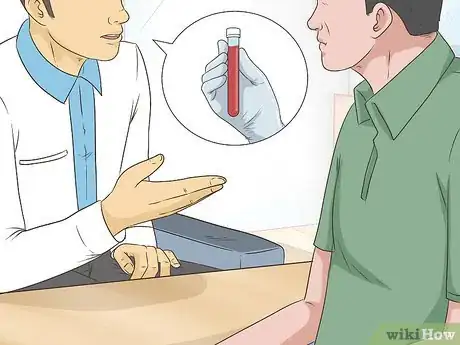

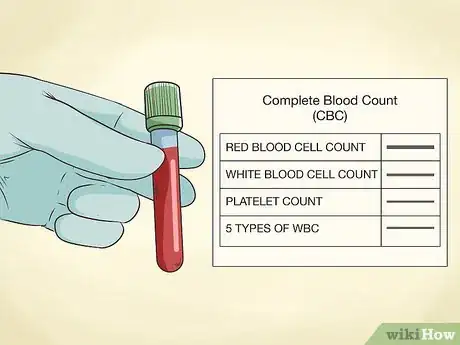
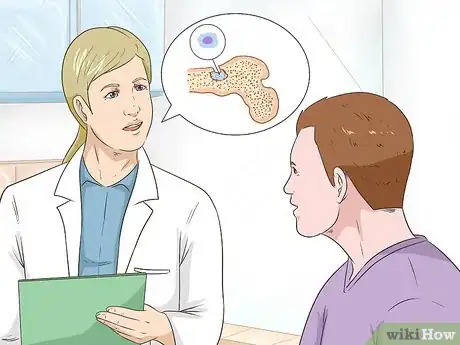
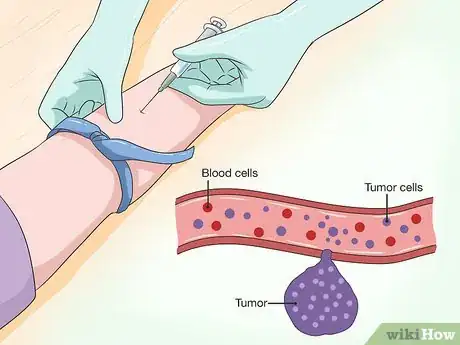

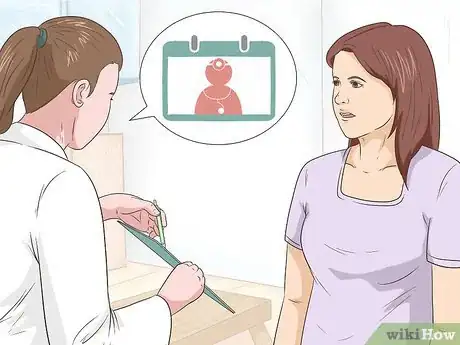
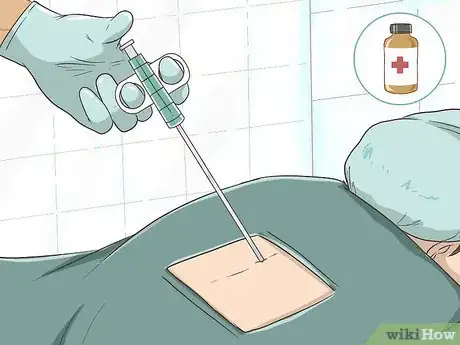


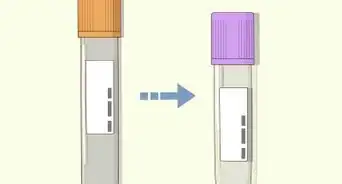
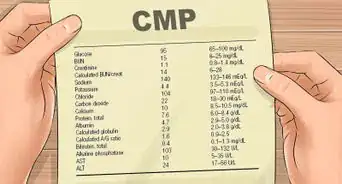

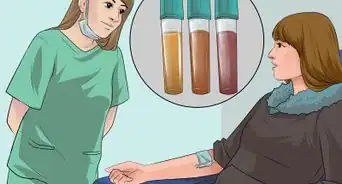


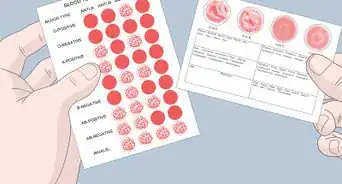

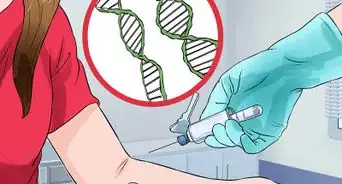
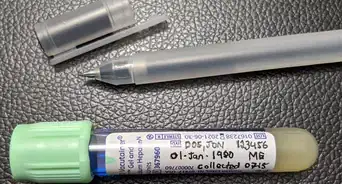









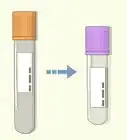
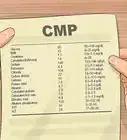



































Medical Disclaimer
The content of this article is not intended to be a substitute for professional medical advice, examination, diagnosis, or treatment. You should always contact your doctor or other qualified healthcare professional before starting, changing, or stopping any kind of health treatment.
Read More...